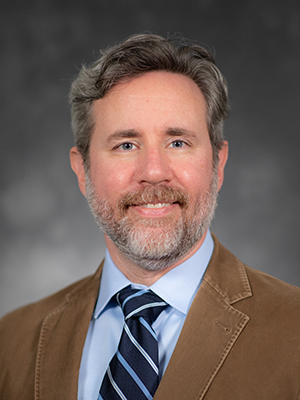 Dr. Richard Malak, associate professor and Morris E. Foster Faculty Fellow I in the Department of Mechanical Engineering at Texas A&M University, was appointed program director by the National Science Foundation (NSF) for both the Systems Science (SYS) and the Engineering and System Design (ESD) programs under the Civil, Mechanical and Manufacturing Innovation (CMMI) division.
Dr. Richard Malak, associate professor and Morris E. Foster Faculty Fellow I in the Department of Mechanical Engineering at Texas A&M University, was appointed program director by the National Science Foundation (NSF) for both the Systems Science (SYS) and the Engineering and System Design (ESD) programs under the Civil, Mechanical and Manufacturing Innovation (CMMI) division.
The programs support fundamental research in the area of how to design large-scale and complex engineered systems. The SYS program focuses on the theoretical foundations for these activities whereas the ESD program focuses on novel methods for engineering and systems design.
Malak brings an extensive teaching and research background focusing on issues relating to complex systems design and engineering to the position.
As program director, Malak receives proposals from institutions across the country and carefully selects and oversees panels of experts who review and rank each submission. NSF’s emphasis on panel review makes organizing these panels — so expertise and research align — an important duty. Malak then makes funding recommendations based on the panels’ remarks.
Both the SYS and ESD programs are concerned with the broader issue of developing large and complex systems, however they differ in the angle that is taken: one is to understand, the other to improve — and both can require collaboration between disciplines in order to advance current understanding.
“I think we're at a point where you're starting to see people recognize the importance of bringing these perspectives together,” Malak said. “You’re starting to see excited young researchers in the community coming at this from different viewpoints and who are trying wholly different approaches to thinking about and understanding these problems.”
Advances supported by the ESD and SYS programs can have a broad impact on society by helping designers realize engineered systems more effectively and with better overall outcomes, including enhanced performance, higher efficiency and lower environmental impact.
“Methods that work well for the design of a bicycle don’t necessarily scale well to the design of a manned fighter jet,” Malak said. “Yet, there are underlying principles that apply to all design methods.”
Malak also serves as the design research expert for the multidisciplinary Design of Engineering Material Systems (DEMS) program. The DEMS program supports fundamental research into methods for designing engineering material systems.
This appointment is not only an honor for Malak, his achievement also brings attention to the growing mechanical engineering department at Texas A&M.
It also will benefit Texas A&M in the long run.
“I will be gaining expertise and knowledge that I didn’t have before and I will bring it back to campus with me,” Malak said. “My goal is to be a resource for people in this department and this college.”
Malak holds a Master of Science and doctorate in mechanical engineering from the Georgia Institute of Technology; a Master of Science in electrical and computer engineering from Carnegie Melon University and a Bachelor of Engineering in electrical and computer engineering from Stony Brook University.
His awards include the 2014–15 Texas A&M Engineering Experiment Station (TEES) Young Faculty Fellow Award; the 2014–15 Lockheed Martin Teaching Excellence Award; and 2014 Engineering Genesis Award for Multidisciplinary Research, given in recognition of success in leading large-scale multidisciplinary research projects at Texas A&M.